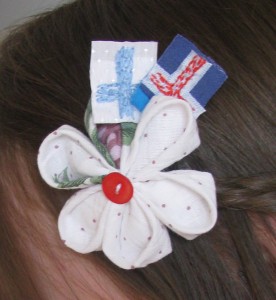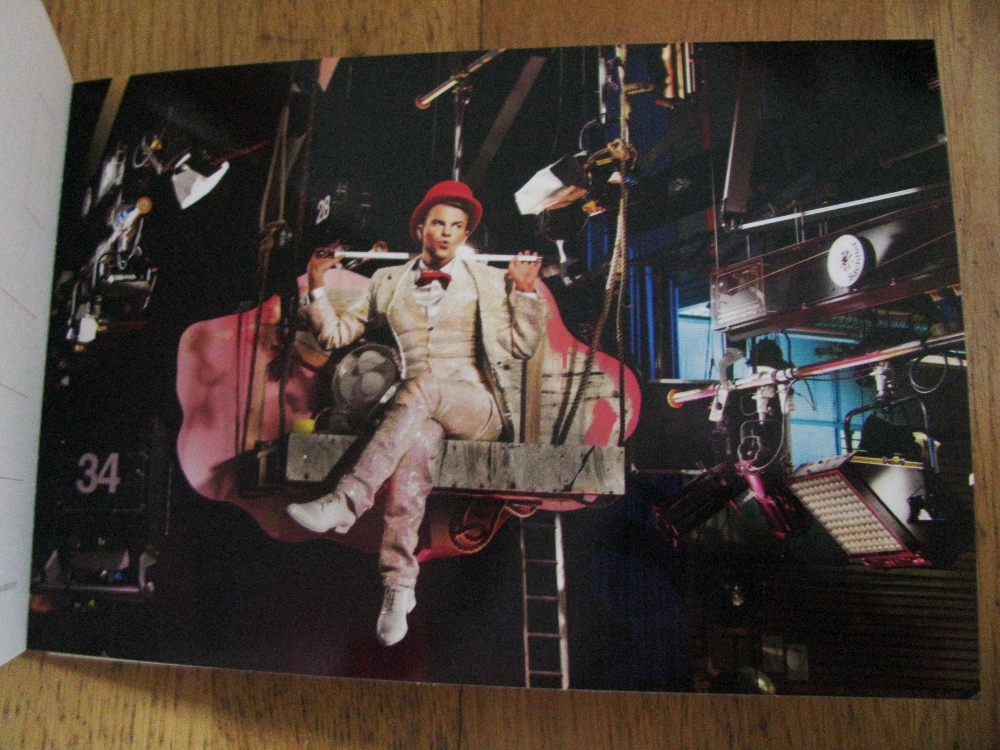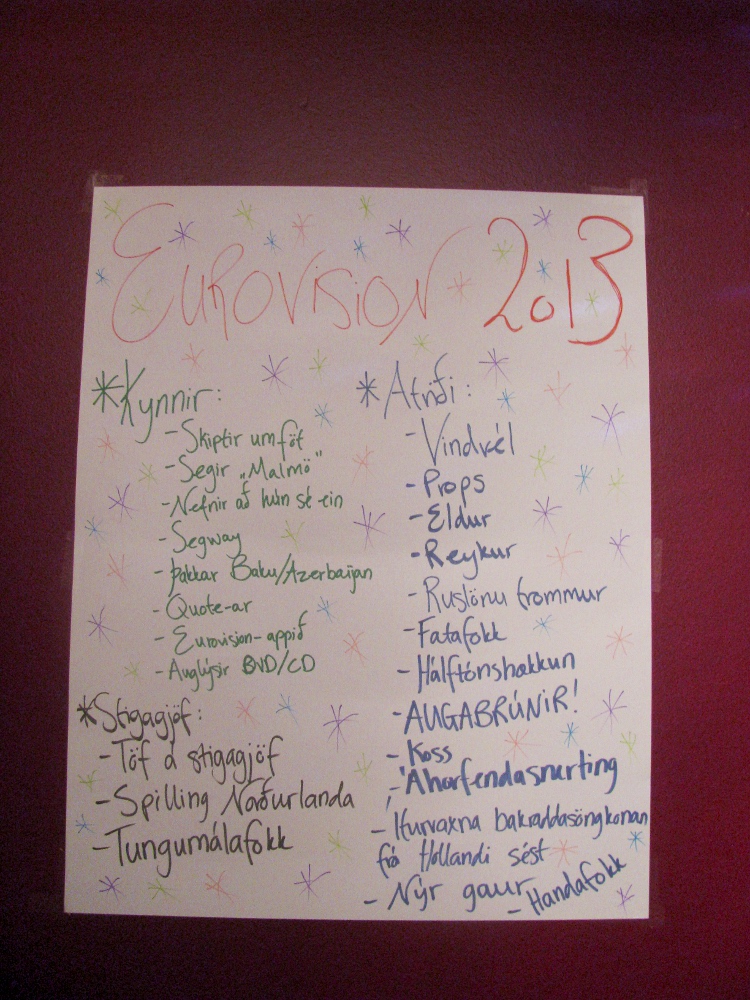Iceland: the most successful loser of Eurovision? Posted by hulda on May 19, 2013 in Icelandic culture, Icelandic customs
 If there is one thing that the Icelanders always excel at without a single flaw it’s partying. Yesterday’s Eurovision song contest was therefore no exception, the partying started well in advance when Iceland’s representative made it into the finals and is still going on as I write this. Well, the aftermath is mostly bitter comments directed towards the winner, Denmark.
If there is one thing that the Icelanders always excel at without a single flaw it’s partying. Yesterday’s Eurovision song contest was therefore no exception, the partying started well in advance when Iceland’s representative made it into the finals and is still going on as I write this. Well, the aftermath is mostly bitter comments directed towards the winner, Denmark.
To sum up the Eurovision Song Contest, it’s an annual competition that sees participants from every country on the European continent plus Israel, Cyprus and Morocco. There are even more countries outside of the continent that are eligible to enter, but they’ve never sent a representative to the actual competition.
The competition itself has two semifinals, where ten winners are selected from each batch of countries for the finals. This system does not include “The Big Five”, UK, Germany, France, Spain and most recently Italy, who get their representatives to the finals without having to battle in the semifinals first. The host country, being the country that won the previous year, is also automatically in the finals.
Iceland has never won the Eurovision, yet it’s come second twice (1999: Selma/All Out of Luck and 2009: Yohanna/Is It True). It debuted in the competition in 1986 with a song called Gleðibankinn (an excellent mullet ahoy). The song Iceland sends has most often been sung in Icelandic, but there was a long period after Páll Óskar’s Minn hinsti dans in 1997 when the language was changed to English – the songs were sung in Icelandic while in Iceland and then translated into English for the competition. The opinion on how good idea this was varies, but personally I find that the translations leave off so much of the original songs that keeping them in Icelandic shows them more respect. Thankfully this year’s entry Ég á líf was sung again in Icelandic, for the first time since 1997!
Páll Óskar himself. I’m a big fan!
The winner is chosen by both a jury and public vote, 50% each. Unsurprisingly this means that neighbour countries vote each other a lot, one example being the Nordic countries whose habit of hanging together is nothing short of legendary. Looking at Iceland’s points alone makes this strikingly clear: during the whole history of Eurovision Iceland has given the most points to Denmark, followed by Sweden, Norway, France and – Finland. On the other hand Iceland has received the most points from Sweden, followed closely by Norway and Denmark. That’s why it came as a huge shock to Icelanders that Denmark only gave them one point this year. What on earth does this betrayal mean, we thought we had a deal! 😀
However, one’s own country winning is not the main thing about Eurovision celebrations. More importantly it’s a time to spend in good company with good food and –
– drinking games. The rules for a typical drinking game usually state that you have to choose a country or two countries you’re rooting for and whenever they get points, you take a sip. During the performances there are certain Eurovision cliches that mean the whole group has to drink. In the above photo the game is divided into three categories: first the announcers, then rating and thirdly the performers.
The list above goes as follows.
Kynning (= presenting, the announcer/s): skiptir um föt (= changes clothes), segir “Malmö” (= says Malmö), nefnir að hún sé ein (= mentions that she seems to be alone), Segway (hahaha I have no idea why this one is on the list – Eurovision is a strange competition indeed!), þakkar Baku/Azerbaijan (= thanks Baku/Azerbaijan, the place where the last year’s Eurovision was held at), quote-ar (= quotes something: the word ‘quote’ is used here as an English word with an Icelandic verb ending), Eurovision-appið (= Eurovision application gets mentioned), auglýsir DVD/CD (= advertises DVD/CD).
Atriði (= “items”; performers): vindvél (= wind machine), props (= props – an English word), eldur (= fire), reykur (= smoke), Ruslönu trommur (= I’m not entirely certain of what this one means – Ruslana drumming?), fatafokk (= doing something showy with clothes; fokk is yet another English loan word, but it holds a lot less weight than the original, English curse; fokk is often used to describe some kind of unnecessary messing about).
Hálftónshækkun (= semitone higher), augabrúnir (= eyebrows: here used to mean notably large and bushy ones), koss (= kiss), áhorfendasnerting (= contact with the audience, in other words shaking hands with the front line). The next one I’m afraid I cannot really make out… something about the background vocals of Netherlands? Nýr gaur means a new guy, a performer that suddenly appears on stage in the middle of the song, which is a very popular trick in Eurovision. Handafokk, despite of how it sounds like, actually means unnecessarily dramatic gesturing with hands here. 😀
Stigagjöf (= “points giving”; rating): töf á stigagjöf (= delay during the rating), spilling Norðurlanda (= Nordic corruption: when a Nordic country gives points to more than one other Nordic country) and tungumálafokk, which means any clumsy attempt at using a language the announcer does not know.
I’m just happy I stood for Finland and Iceland – Iceland of course got lots of points but my homeland’s failure probably saved me from alcohol poisoning! 😀
To end with, here’s a quick translation of what I still think of as the best song of this year Ég á líf, sung by Eyþór Ingi Gunnlaugsson (you can also listen to the song here with Icelandic subtitles)(there’s also a small interview on him here – he’s mostly talking about his clothes and jewellery, but at the end he also sings for us – also… is it just me or does he look quite a lot like Thor?):
I’m alive
I left for that long journey
I went forward, lost and restless
I thought of nothing, not further than the next day
Loneliness and tranquility I chose
I’m alive, I’m alive, I glide over hardships
I’m alive, I’m alive because of you
When the winds turn at me I climb over the high mountains
I’m alive, I’m alive, I’m alive
I did not understand the love that moves everything
I did not dare to embrace and stay
I felt I didn’t deserve to open my mind
And let the brightness of love enter
I’m alive…
And I believe, yes I believe
Maybe the beautiful gates of the sky will open
The beauty of love will flood out and over me alone
I’m alive…

Build vocabulary, practice pronunciation, and more with Transparent Language Online. Available anytime, anywhere, on any device.
About the Author: hulda
Hi, I'm Hulda, originally Finnish but now living in the suburbs of Reykjavík. I'm here to help you in any way I can if you're considering learning Icelandic. Nice to meet you!





